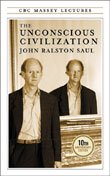
With every year, particularly since 9/11, it’s harder and harder to find reasoned debate. By ‘reasoned debate’, I mean a discussion where arguments are backed up with reason, a bit of logic, and some semblance of research/understanding of history. What doesn’t pass for ‘reasoned debate’ – what we currently have before us – is hyperbole, name-calling, grand-standing, and ridiculously partisan follies paraded in all forms of media.
Before I go any further, I encourage you to look at the dictionary definition of debate. The important word repeated throughout is discussion. I don’t think this word needs defining, though some days I think it should be printed on t-shirts and handed out to school children so that it’s not forgotten. But I digress.
Two reasons for the lack of true (as in useful) debate come to mind, although I’m sure there are more:
1) The replacement of individual thought with self-invested group-think.
2) The perversion of language and its subsequent use as a weapon.
– – –
The first point is as clear as it is demonstrable. Increasingly, individual citizen input (from either the public or private sector) is bypassed in favour of specialists from advocacy groups and so-called think-tanks. Some examples: in Canada, The Fraser Institute, the C.D. Howe Institute, and the Canadian Taxpayer Federation. In the U.S., examples include the CATO Institute, the Heritage Foundation, and the Alexis de Tocqueville Institution.
Whether leaning towards a particular side of the political spectrum or specialising in a particular av enue of advocacy, all of these groups have one thing in common: self-interest. In corporatist style, think tanks and advocacy groups have been propped up as representatives for a discussion which should take place within the public arena but doesn’t. It doesn’t because the public arena is seen as messy; in an increasingly corporatist society, messy doesn’t compute. Messy needs to be streamlined. The rise of advocacy groups, think-tanks and (increasingly) NGO’s often has nothing to do with the public and everything to do with establishing each group’s predominance in their field. Indeed, the first and last thing both the Canadian Taxpayer Federation and the CATO Institute have in common is making sure their organisations keep running – certainly not fostering independent thought.
enue of advocacy, all of these groups have one thing in common: self-interest. In corporatist style, think tanks and advocacy groups have been propped up as representatives for a discussion which should take place within the public arena but doesn’t. It doesn’t because the public arena is seen as messy; in an increasingly corporatist society, messy doesn’t compute. Messy needs to be streamlined. The rise of advocacy groups, think-tanks and (increasingly) NGO’s often has nothing to do with the public and everything to do with establishing each group’s predominance in their field. Indeed, the first and last thing both the Canadian Taxpayer Federation and the CATO Institute have in common is making sure their organisations keep running – certainly not fostering independent thought.
One thing you can count on is that advocacy groups and think-tanks are consistent: everyone tows the line, everyone knows the script. Their facts, usually half-sided, are provided-for internally and what research they do is with the sole intent of reaching a pre-conceived conclusion that suits a pre-defined format, whether it be economic, social, or political.
tows the line, everyone knows the script. Their facts, usually half-sided, are provided-for internally and what research they do is with the sole intent of reaching a pre-conceived conclusion that suits a pre-defined format, whether it be economic, social, or political.
When these organisations are inserted in place of the citizen’s voice, democracy becomes Kafka-esque. Often, one ideological think-tank is pitted against another, and what is discussed has no relation to truth (as either the citizen sees it or would like questioned) but to the safe consistency of “staying on-message”. Thus, there is very little debating in lieu of ideological advertisement.
It’s tempting to admire projects like Media Matters for America, which can be very effective at spotting media bias, but my frustration is that its interests are inherently one-sided: attack Republican bias, but support/protect Democrat initiatives. Indeed, it would be daunting for an organization devoted to highlighting media bias if it was looking at all sides of the media paradigm – and this comes to my concluding point: vested interests are easy to finance. Complexity is not.
– – –
The second blockade to real debate is the perversion of language. Media pundit Bill O’Reilly is probably one of the most accomplished when it comes to the distortion of language. His polemic style, his bullying aggression towards dissenting opinion, and his partisan hatred are broadcast every weekday to an audience of millions. He begins and ends most of his addresses with the well-worn cloak of false common-sense: everyone wants to protect freedom, everyone is concerned about terrorism, everyone knows that there are far-left extremists among us. Everyone. His consistent target is a group known previously as liberals, but most recently goes by the moniker secular progressives. In O’Rielly’s words, they are elitists and only Bill O’Reilly can identify this imminent threat to our safety. Obviously this is all very partisan and prejudicial and not dissimilar to what has been said and demonstrated throughout the 20th century by both fascists and Communists – but everything about O’Reilly and FoxNews is paradoxically draped in the opposite: his show is called The No-Spin Zone and his channel’s mantra is Fair and Balanced. The paradox continues the more attention is spent on their language: leftists are compared to Nazis…actually, that’s wrong: everyone who takes a different side ends up being portrayed as a Nazi…or alternately a Communist. (I suggest FoxNews create a doll that, on cue, devotees could raise and shake towards the TV screen at opportune times, whilst shouting “Ooogey boogey ooogey!”.)
A less outraged sentiment is echoed by newspaper columnists such as the Globe and Mail’s Margaret Wente, who habitually tut-tuts those who question authority (save for when she decides to). Her approach, albeit certainly less vitriolic than O’Reilly’s, is to portray dissenters as part of a privileged latté-sipping middle-class elite. Her motto seems to be: shut up and live with it – ostensibly the antithesis of debate itself.
Again, we come back to the word elitist. Elitism is, we are told, our enemy. It’s an easy way to cast aspersions on dissent – let’s face it, there are always going to be a smaller percentage of people who ask disinterested questions (that is, questions that are not self-serving but serve the ideals of the community). In her book, Prisons We Choose To Live Inside (reviewed here), Doris Lessing is philosophical about the word elitism and it’s accusatory usage. She goes so far as to determine it a necessary evil if it means the freedom to ask important, if unpopular, questions aloud. In other words, if painted an elitist – so be it.
– – –
From a local perspective, the debate disconnect was driven home – literally and figuratively – when in 2000, Toronto broadcaster CityTV refused to hold an election debate between the incumbent mayor, Mel Lastman and his opponents. This was the first time CityTV had decided to do this since they began hosting televised mayoral debates*. While it was arguable at the time as to the feasiblity of any of Lastman’s opponents winning (and it should be noted that Lastman won with 80% support), it was shocking to see a local broadcaster that wraps itself in a mantra of street-level community-building refuse to even go that simple distance. I remember watching an evening call-in show on CityTV, hosted by Lorne Honickman, whose guest was mayoral hopeful Tooker Gomberg – this took place after the announcement that there would be no debate. I clearly remember the disbelief, bordering on contempt, that Honickman displayed as caller after caller phoned-in to simply ask: why? Why no debate? His retisence to discuss the subject was as obvious as his clear disdain for his guest.
– – –
Debate is inclusive, not exclusive. Its aim is perspective – not the promotion of canned answers or unmovable positions. The object of debate is not disgracing dissent, but putting forth reasoned arguments. I think there’s a long road ahead as regards our ability to communicate, to argue respectfully, and to share ideas. These things happen at a smaller scale all the time in our communities, but I think we’ve forgotten how important they are, thus it’s going to take a while for citizens to feel attached to it again; to take command of their own voice, as it were.
The responsibility to restore true debate falls on civilians – when the citizenry abdicates responsibility for public discussion, we shouldn’t be surprised when the gap is filled by self-interested interest-groups. When societies forget about their social responsibilities those responsibilities are often annexed as anachronisms, and replaced by the empty comfort of technology (ie televised think tanks). The Internet is a good tool for the restoration of debate, but it’s only a tool and not in and of itself anything more. What’s needed is the will to reform, reason, and a sense of responsibility to society as a whole.
* (I can find no record to refute this, but I’m open to correction)





